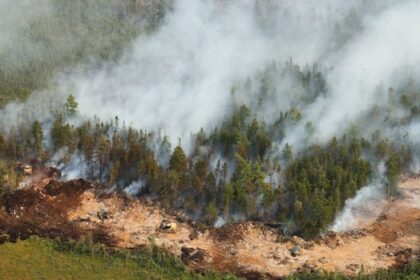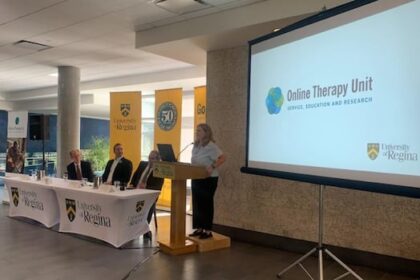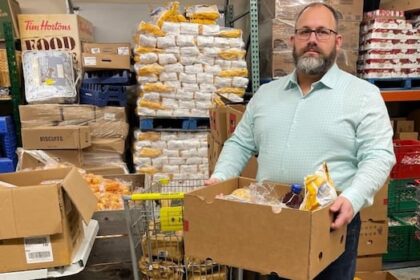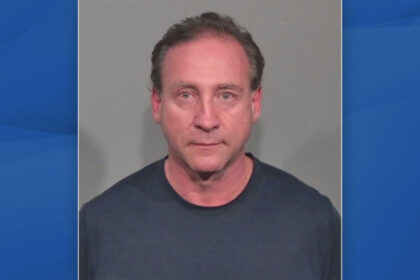A nursing student from Behchokǫ̀ First Nation in Treaty 11 territory is forging a path she hopes other Indigenous youth can follow. Makayla Mantla, 31, was personally selected by the president of the Canadian Federation of Nurses Unions (CFNU) to sit on its Indigenous Nursing Health Advisory Committee. The committee also includes an elder and cultural advisor and had input on what to include in an apology to Indigenous peoples. She also travelled to the federation’s annual convention as it delivered the apology on behalf of its members on June 3 as a step towards reconciliation. The Canadian Medical Association also offered an apology in September 2024, that some criticized as being performative and lacking action. “We didn’t want it to seem like we’re doing it because everyone is doing it,” Mantla said, acknowledging the time it took to craft the apology. “I think the most important thing is it is being done. We’re still trying to build a foundation of trust and as long as we’re trying, maybe other organizations will follow as well.” Mantla just completed her third year of nursing school at the University of Alberta (U of A) and is part of the honours program. She also just returned from speaking at a conference in Finland. Getting to where she is now is a tale of discovery by Mantla of what she was capable of in spite of her start in humble conditions many would consider impoverished. In a profile published on the faculty of nursing’s website, Mantla recalled living in an old brown log type house with mice in the walls that was difficult to keep warm in the winter. They got water delivered once a week because there was no running water. It’s a long way from speaking before international audiences. APTN News asked Mantla what she would tell young nurses about respecting Indigenous culture as part of nursing care. Mantla points to a speech she gave to the U of A earlier this year where she told the audience when they see racism-they must be the patient’s voice. “The most important thing we can do as students is be able to advocate and have that courage to step up when we see mistreatment not just for Indigenous people but all minorities,” she said. That type of advice may be needed. An incident last year in an Edmonton hospital where a nurse cut off the braids of an elderly First Nations man sparked outrage throughout the Indigenous community. “When you hear stories like that it’s hard and it’s still going on because I honestly believe for Indigenous people in Canada, racism and discrimination will never go away 100 per cent.” Mantla said during work placements as part of her training, she has always asked how many Indigenous people they have on staff and the answer she often hears is “not that many.” She recalled an incident of racism she witnessed during her first placement that has stuck with her. “I remember hearing an Indigenous man and a nurse and they were yelling at each other and they were arguing. And the Indigenous man kept saying that he was nauseous,” Mantla said. “I remember he said ‘please help me.’ He’s nauseous-he wants medication-he had an IV maybe an IV push because this was very urgent. And nothing was being done.” Mantla said before she left the hospital that day, the man’s nurse came to her asked if she would take his vital signs saying he was very difficult to deal with. “I went in there and I introduced myself to the patient and he had a wife and a daughter there. I said to him ‘I heard you’ve had a difficult day but I hope my interaction with you can make your experience better,’” Mantla told APTN. “The wife asked me are you Indigenous, are you First Nations? And she was so happy that I was there.” Mantla said when she checked the man’s chart, there was nothing noted for him for the whole day, indicating he may not have been seen by anyone. Another instance of what she believes was racism at play was the safety rail not being put up on an Indigenous woman’s bed while she was sleeping. Mantla said that’s basic care that nursing students are taught. Mantla shared how her own parents were mistrustful of doctors when she was young and she says she now understands why. Mantla also says she has a dream as an Indigenous nursing student with a growing career as a motivational speaker. “I dream of fixing the lack of Indigenous representation in health care so Indigenous people will feel safe for the first time,” she said. Tags: apology, Bechoko, Canadian Federation of Nurses Unions, CFNU, Edmonton, First Nation, Hospital, nurse, Racism, Training, Treaty 11, University of Alberta Continue Reading
First Nations nursing student at University of Alberta has a dream for the future
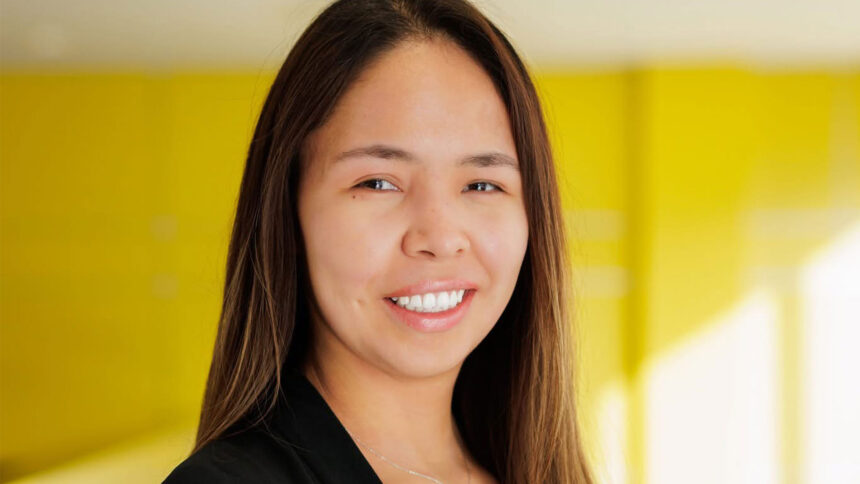
Leave a Comment







